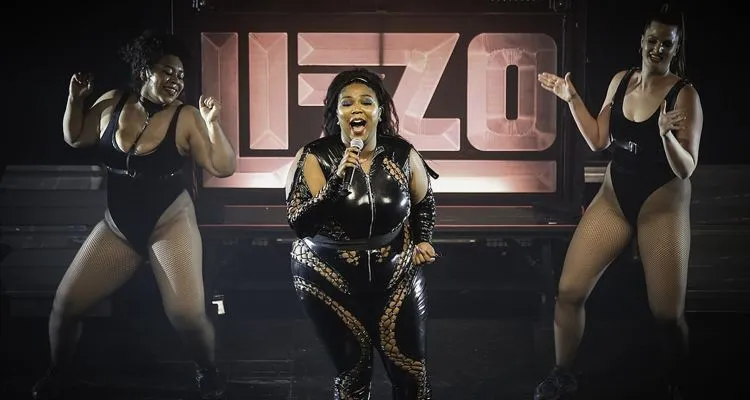Photo Credit: Andy Witchger / CC by 2.0
Lizzo changes the lyrics to her new song “Grrrls” following complaints about an offensive word. The singer and rapper, considered by many fans as a champion of inclusivity, says she never wants to “promote derogatory language.”
The song “Grrrls” debuted Friday and was re-released Monday following Lizzo’s updated lyrics. In the original version, Lizzo used the word “spaz” to express losing control. The term derives from spastic diplegia, a form of cerebral palsy, and in some countries, like Australia and the UK, it has seen use as a derogatory taunt.
Disability advocates brought to the singer’s attention the word’s use as an ableist slur. By Monday, major music streaming platforms replaced the song’s original version with Lizzo’s updated lyrics, “hold me back.”
Lizzo states in an Instagram post that she understands the effects of harmful language, whether intentional or not. “As a fat black woman in America, I’ve had many hurtful words used against me,” she explains.
“Let me make one thing clear: I never want to promote derogatory language,” Lizzo says. “This is the result of me listening and taking action.”
Weird Al Yankovic’s “Word Crimes,” his 2014 riff on Robin Thicke’s “Blurred Lines,” received similar criticism for his lyric, “you write like a spastic,” and Kanye West made a similar mistake in 2015’s “FourFiveSeconds.” American artists often run afoul of this particular dichotomy; words in English have different meanings and uses across various countries, and sometimes artists use this to provoke a response intentionally. Lizzo says in her case, it was unintentional, and she reacted swiftly to change the song, which is currently only available digitally.
“Otherwise it might have been a much more expensive mistake if physical products needed to be recalled,” says Gideon Benaim, partner and leading reputation protection specialist at Simkins. “She’s unlikely to be ‘cancelled’ and in fact, reputationally, she has come out of this episode well.”
“However, it’s not the first time that lyrics have been changed, and it won’t be the last,” Benaim continues. “For example, the Black Eyed Peas changed ‘Let’s Get Retarded’ to ‘Let’s Get It Started’ in 2003 before they released the song as a single, and countless songs each year have lyrics changed or edited out for radio and television broadcast.”
He concludes: “If you want to be offended, there are lots of very offensive things out there if anyone took the briefest time to look, but these do not get highlighted in the way Lizzo’s lyric did, and those artists remain adored and idolized, even championed for being ‘so outrageous.’”

